How to reduce humidity in house in summer?
3 Key Takeaways:
🚀 High indoor humidity levels can be prevented in many ways, including making specific lifestyle changes during the summer season or investing in dehumidifiers all year round.
🚀 High humidity levels can cause damage to property and health, including respiratory problems, mold growth, dust mites, damp clothes, damp wood floors, and excess moisture.
🚀 The blog post provides 8 tips on how to reduce humidity in a house during summer and reach the ideal indoor humidity in your home.
Tackle high humidity in your house this summer.
High indoor humidity levels inside the house make a very uncomfortable indoor environment. A humid environment can be prevented in many ways. You can take measures from your end to prevent the excess humidity levels that build in your house. There are ways to remove moisture levels and keep the space cool, even without completely depending on the AC unit in your house.
Let us take a close look at the reasons for high summer humidity levels inside the house, the ways to prevent them, reduce the heat and humid air, bid goodbye to respiratory problems, mold growth, dust mites, damp clothes, damp wood floors, and excess moisture in the air.
What causes high humidity in house in summer?
Humidity levels naturally rise during the summers. A warmer climate can elevate indoor humidity since such high temperatures have the capacity to hold too much moisture. Poor indoor air quality and high indoor humidity during the summers can also arise from the daily activities that happen indoors.
Washing dishes (be it by hand or running the dishwasher), cooking in the kitchen, damp clothes from laundry or drying laundry indoors, bathing, running the washing machine, physiological activities like breathing and sweating can also contribute to too much moisture accumulation the environment during summer.
The more the number of family members the higher might be the effect of humidity in your home. However, this can be dealt with ease if you make a few specific lifestyle changes during the summer season or by investing in the dehumidifiers all year round.
Why Should You Reduce the Humidity in Your House?
Too much humidity in your home comes with a lot of damaging effects. While occasional humid weather can be tolerated, continual summer humidity levels that are filled with excessive moisture levels are harmful to one’s family members and the home.
Sometimes the reasons for high summer humidity can be malfunctioning air conditioning units that are struggling from a full load of removing excess moisture
Too much moisture in the air causes damage to property and health. Here are a few reasons why excess humidity levels are not good and why you must find ways to reduce humidity levels and remove excess moisture from the air.
- A poorly functioning air conditioner is one of the common reasons for high humidity levels. When the air inside the house is humid and the indoor air quality is poor, it paves way for several respiratory problems.
- Family members with asthma, lung problems and allergies will find the high humidity and low indoor air quality difficult to stay in.
- Dust mites, mold growth, mold spores, mildew, rust, and corrosion will also increase when there are high humidity levels indoors.
- High indoor humidity levels also can lead to water damage, damp wood floors, drywall, etc.
- High humidity indoors, even if it is not during summer is not good for health. Ideal indoor humidity levels are expected to be maintained at all times. Excessive humidity and suddenly elevated humidity levels can also affect one’s emotional and mental state of being. If you feel sluggish out of nowhere, it is time to check the humidity in your home.
The first place to look into when you find it hard to maintain the ideal indoor humidity levels in your house is the air conditioning systems. A malfunctioning AC system is one of the common causes of high humidity levels in most homes.
Investing in a simple thermostat set and whole house dehumidifier will make it easier to reduce higher humidity levels effortlessly. It is important to ensure that you do not run into low humidity when you decrease humidity levels using a device. Low humidity levels come with their own set of challenges. When there is too little moisture in the environment, it will also cause you similar problems as high humidity. When there is too little moisture, you will have to look into measures to add moisture to your environment and stop what removes moisture from the air around you. When you remove moisture excessively, you will diminish the indoor air quality yet again.
Here are some problems that arise from reduces moisture levels in the air.
- Drying of mouth and eyes when there is little to no moisture left in the indoor air.
- Dry, cracked, and irritated skin.
- An increased risk of developing respiratory disorders.
Ensure that you pay close attention to the humidity level that you maintain indoors. Keeping the right balance between too much moisture and trying to reduce humidity levels is essential. While elevated humidity levels have their disadvantages, so does the contrasting lower humidity in your home. Less humid air is required in the right proportion.
8 Tips On How To Reduce Humidity In A House In Summer
Is your home battling higher humidity levels during the summer? Here are some tips that will let you know how to reduce humidity in the house in summer and reach the ideal indoor humidity in your home. Bid adieu to the problems that come with excessive humidity and high moisture content in the air with the following ideas.
1. Dehumidify
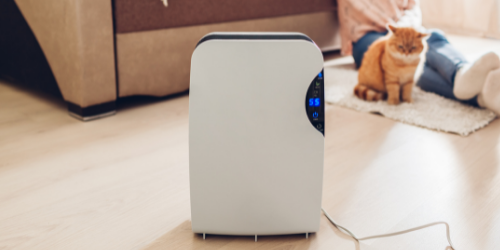
One of the best ways to remove excess moisture from the air is to dehumidify. You can either choose to invest in a whole house dehumidifier or a small dehumidifier based on the requirements of your home size, the temperature, and humidity levels inside the home on a regular basis.
High humid environments can be tackled only with dehumidifiers. While an air conditioner can reduce the humidity level to a certain extent, it can’t extract moist air from the environment. You can prevent mold and mildew, and the accompanying problems of high humidity levels inside your home with a whole house dehumidifier.
A dehumidifier will take in the humid air from the surrounding, along with the excess water content in the air and the things, run the air with humidity over refrigerated coils and give out fresh air or cool air that is free from dampness and allergens.
An air conditioner can give out only cool air and not act upon the dampness. Of only cooler air during the summers is your aim to prevent excess sweat and heat, you can opt for air conditioners. But, to act upon the humidity level professionally you must get a whole house dehumidifier or a portable dehumidifier unit to reduce humidity along with getting cooler air.
2. Get fresh air supply

One of the first suggestions that come to everyone’s mind on how to reduce humidity in house in summer is to open the windows and a supply of fresh air inside the home. Letting the warm air from inside the home escape out and let the air circulation work naturally when not just improve the indoor humidity and indoor air quality, but it will also help to maintain dry indoors.
Getting warm air and indoor air circulate will help to keep dry indoors, prevent wet stains from building up indoors, and reduce the humid environment. However, you must remember that you cannot have open windows when the air conditioning system is On. Having open windows when the air conditioning system is On will damage the AC unit and also tamper with the indoor air quality.
As and when time and situation permits, consider keeping the windows and doors open (without affecting the quality of the air conditioning systems) get rid of excess humidity in your home.
3. Insulate
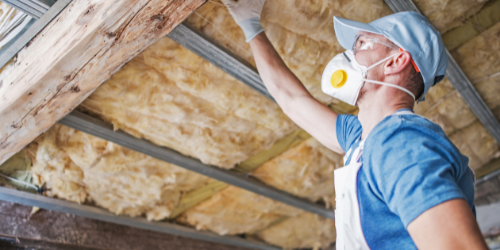
Insulation is a brilliant mechanism to stop the humid climate from entering your home. Insulating doors, windows, sealing cracks in your home, will ensure that your home is sealed and protected.
Visit your local hardware store to procure tools and adhesives that can help you insulate. Most local hardware store owners are equipped to offer the right guidance to insulate your home.
4. Cut down on indoor plants
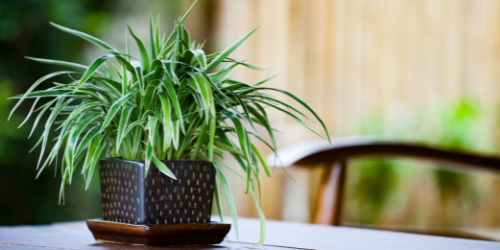
Did you know high indoor humidity is most times built from the indoor plants we have?
Cutting down on the number of plants you keep inside or moving them to places that will not contribute to high indoor humidity will help. Plants breathe in carbon dioxide and release water, moreover, when you water plants you are adding moisture to the environment. While some plants may work wonders for indoor air quality, they also cause indoor humidity troubles.
5. Consider getting fans
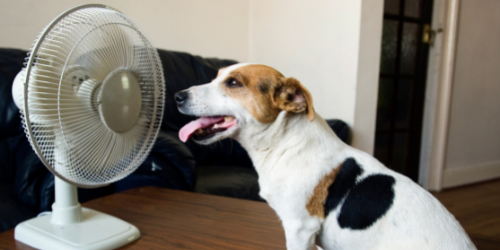
Exhaust fans, ceiling fans, vent fans. Each of these is a smart way to keep pushing moist air outside. Using exhaust fans in areas that are exposed to moisture and high heat build-up (for example bathrooms, kitchen, etc.), will ensure have reduced indoor humidity.
Fans are also less expensive ways to reduce temperature indoors and in comparison to air conditioners. Although a fan is not a replacement for an air conditioner, it can certainly help in areas with higher humidity levels.
6. Shorter showers
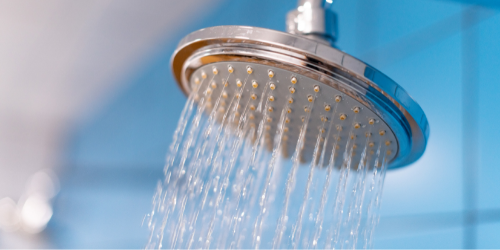
Summer is the time to get shorter showers and cooler showers. A hot shower increases the warmth in-home and shoots the indoor humidity level. Cooler showers will avoid this and ensure the humidity in your house does not spread.
7. Conscious use of sink
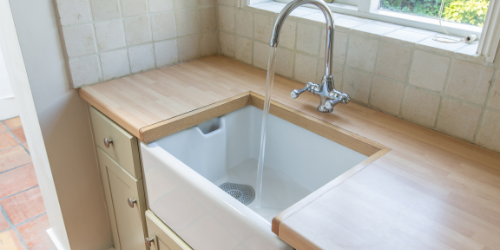
Higher humidity levels can also occur from letting water sit on the sink after brushing teeth or washing dishes. The water enters the atmosphere quickly and makes the place humid. A whole house dehumidifier will extract this dampness and avoid too much humidity from building up.
8. Drying laundry outdoors
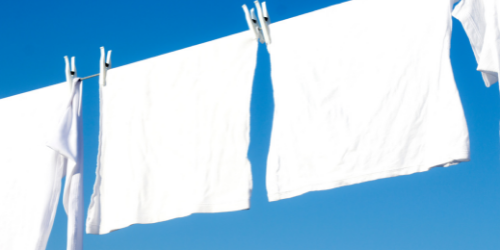
Drying laundry indoors makes the area humid. The water from the clothes enters the surrounding air and leads to too much humidity in the laundry room. Dry laundry outdoors to get rid of this issue with ease.
What time of day is humidity highest?
You can observe that the relative humidity reaches the highest during the early mornings (when temperatures are lowest) and reaches the lowest during the afternoons (when the temperatures are high). The absolute humidity or dewpoint does not change, however, these fluctuations can be expected indoors.
How can we remove moisture from room during monsoon?
Here are some simple steps you can follow to reduce moisture in your room during the monsoon.
Cook with saucepans closed with a lid on, whenever possible to stop the steam from entering the room, wipe down countertops, shower, and sink after nursing them to keep water away, make provision to dry clothes outdoors during summer and monsoon, invest in portable or whole house dehumidifiers, make use of air conditioners even during the monsoon (at least when the indoor humidity rises) and not just during the summer.
FAQ Section
1. What is the Ideal Indoor Humidity Level in Summer?
You will have a home that is too humid to stay in when the relative humidity level is very high. The ideal level to be maintained during summers inside a home is between 30% to 50%
Staying within these levels will prevent indoor humidity from rising.
2. Does heating a room reduce humidity?
Heating up a room will lower the level of relative humidity. It makes the place less humid and does make the area feel cooler.
3. Do fans lower humidity?
The reason why the use of fans is suggested to lower the humidity levels is that the breeze from the fans will evaporate the moisture from the environment.
An inexpensive way to make the space around you less humid without the use of air conditioners is to use fans and place them wisely to get the best effect.
5. Does opening window reduce humidity?
Yes. When you open out the windows you allow air circulation to take place and also prevent the humid air from getting trapped indoors.
As aforementioned, do not open the windows when the air conditioning system is On. This will cause damage to the air conditioner.
6. What temperature should you set the air conditioner in summer?
The recommended ideal room temperature for the summer months is 78 degrees Fahrenheit. Setting the air conditioning system to maintain this temperature will keep your home cool and comfortable.
Different air conditioners come with different capacities and features. Check the manual to understand the settings and features that come in your air conditioner to get the best cool air flow.
Wrapping Up
That’s an end to the article on reducing indoor humidity during summer. We trust you found the information and tips helpful to make your summer humid-free and keep you and your family members comfortable and protected at home. Share with us in the feedback form your experiences with summer humidity and how you handle it.

About The Author
Olivia — a self-confessed air quality addict — is a home climate enthusiast, fresh air advocate, and someone with deep personal experience and knowledge about mold extermination. Her work was mentioned in countless notable humidity publications. Previously she was an editor at Mold Remediation.